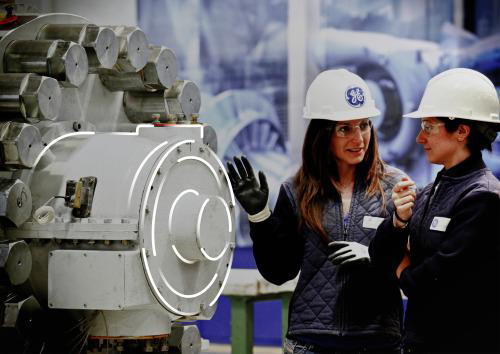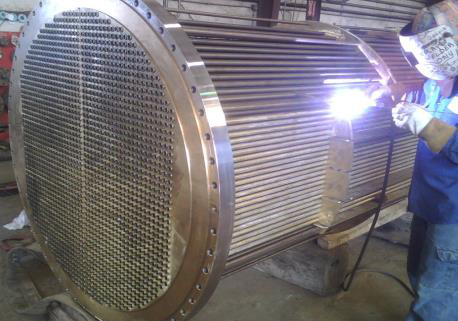COURSE OVERVIEW
PE0390 : Distillation Design, Operation, Control & Troubleshooting

OVERVIEW
| COURSE TITLE | : | PE0390 : Distillation Design, Operation, Control & Troubleshooting |
| COURSE DATE | : | Oct 06 - Oct 10 2024 |
| DURATION | : | 5 Days |
| INSTRUCTOR | : | Dr. Hesham Abdou |
| VENUE | : | Cairo, Egypt |
| COURSE FEE | : | $ 5500 |
| Request For Course Outline | ||
OTHER SCHEDULED DATES
| Date | : | Jan 28 - Feb 01 (5 Days) | Location | : | Dubai, UAE | Classroom Fee (US$) | : | $ 5500 | Course Info |
| Date | : | Mar 03 - Mar 07 (5 Days) | Location | : | Doha, Qatar | Classroom Fee (US$) | : | $ 6000 | Course Info |
| Date | : | Jun 30 - Jul 04 (5 Days) | Location | : | Istanbul, Turkey | Classroom Fee (US$) | : | $ 6000 | Course Info |
| Date | : | Sep 08 - Sep 12 (5 Days) | Location | : | Istanbul, Turkey | Classroom Fee (US$) | : | $ 6000 | Course Info |
| Date | : | Oct 27 - Oct 31 (5 Days) | Location | : | Dubai, UAE | Classroom Fee (US$) | : | $ 5500 | Course Info |
| Date | : | Nov 03 - Nov 07 (5 Days) | Location | : | Dubai, UAE | Classroom Fee (US$) | : | $ 5500 | Course Info |
| Date | : | Dec 01 - Dec 05 (5 Days) | Location | : | Cairo, Egypt | Classroom Fee (US$) | : | $ 5500 | Course Info |
Course Description
This practical and highly-interactive course includes various practical sessions and exercises. Theory learnt will be applied using our state-of-the-art simulators. The Distillation Process is used in many industries to separate mixtures into components. It is defined as a process in which a liquid or vapor mixture of two or more substances is separated into its component fractions of desired purity by the application and removal of heat. The application and removal of heat makes the distillation process energy intensive as it consuming up to 50 percent of a refinery’s operating costs due to intense heating and cooling cycles. Having accurate measurements to feed the control system is critical for energy efficient, safe and reliable operation. Improving distillation columns has always been challenging as problems can occur when operators and engineers have insufficient information about operating conditions. Failing to properly monitors and control process variables can result in decreased product quality and throughput, increased energy costs and unsafe operations that put employees and capital equipment at risk.
link to course overview PDF
TRAINING METHODOLOGY
This interactive training course includes the following training methodologies as a percentage of the total tuition hours
LecturesWorkshops & Work Presentations
Case Studies & Practical Exercises
Videos, Software & Simulators
In an unlikely event, the course instructor may modify the above training methodology before or during the course for technical reasons.
VIRTUAL TRAINING (IF APPLICABLE)
If this course is delivered online as a Virtual Training, the following limitations will be applicable
| Certificates | : | Only soft copy certificates will be issued to participants through Haward’s Portal. This includes Wallet Card Certificates if applicable |
| Training Materials | : | Only soft copy Training Materials (PDF format) will be issued to participant through the Virtual Training Platform |
| Training Methodology | : | 80% of the program will be theory and 20% will be practical sessions, exercises, case studies, simulators or videos |
| Training Program | : | The training will be for 4 hours per day starting at 09:30 and ending at 13:30 |
| H-STK Smart Training Kit | : | Not Applicable |
| Hands-on Practical Workshops | : | Not Applicable |
| Site Visit | : | Not Applicable |
| Simulators | : | Only software simulators will be used in the virtual courses. Hardware simulators are not applicable and will not be used in Virtual Training |
RELATED COURSES

PE0100 : Process Plant Optimization Technology & Continuous Improvement
- Date : Nov 11 -Nov 14 / 3 Days
- Location : Dubai, UAE
- Course Details Register

PE0640 : Troubleshooting Process Operations
- Date : Nov 17 -Nov 21 / 3 Days
- Location : Istanbul, Turkey
- Course Details Register

PE0263 : Fired Heaters, Air Coolers, Heat Exchangers, Pumps, Compressors, Pressure Vessels & Valves
- Date : Dec 08 -Dec 12 / 3 Days
- Location : Doha, Qatar
- Course Details Register

PE0382 : Heat Exchangers & Fired Heaters
- Date : Dec 08 -Dec 12 / 3 Days
- Location : Dubai, UAE
- Course Details Register
